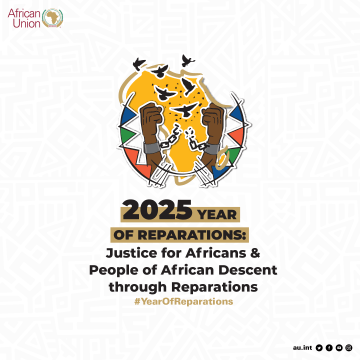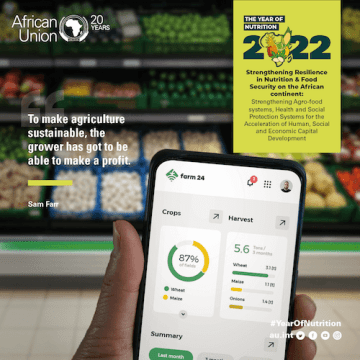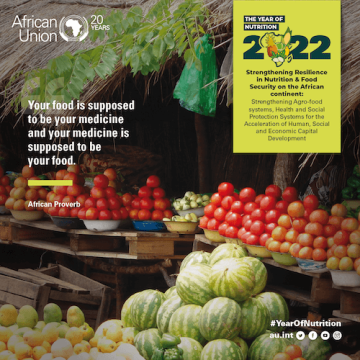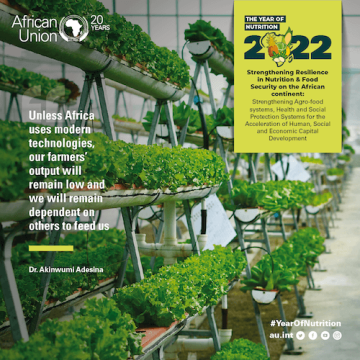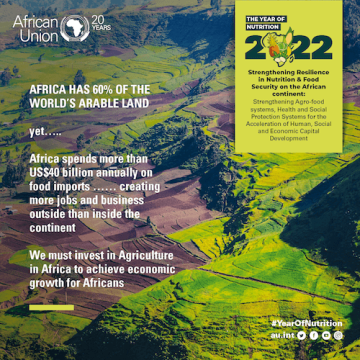
APRM-UN DESA VNR Lab
Strategic Planning and Foresight for Fulfilling the Financial Gaps of Agenda 2063 and the Sustainable Development Goals
18 July 2025
1:00-2:00 pm (EST/ NY time)
UNHQ – Room S1522/23
Overview
A VNR Lab on “Strategic Planning and Foresight for Fulfilling Financial Gaps of Agenda 2063 and the SDGs” will be held at United Nations Headquarters on 18 July 2025, within the framework of the 2025 High-level Political Forum. The VNR Lab is jointly organized by the African Peer Review Mechanism (APRM) and the United Nations Department of Economic and Social Affairs (UN DESA), through its Division for Public Institutions and Digital Government, in collaboration with the UN Economic and Social Commission (ECA).
Strategic planning and governance foresight are critical components for accelerating the implementation of Agenda 2063, particularly during its Second Ten-Year Plan (2024–2033), known as the Decade of Acceleration. They are equally vital for advancing the 2030 Agenda for Sustainable Development, with less than five years remaining to achieve the SDGs. Strategic foresight offers a structured and systematic approach to navigating uncertainty and complexity, going beyond conventional planning. It is essential for fostering adaptive, forward-looking development strategies, particularly in volatile and fast-changing environments, while enabling governments to move beyond linear, short-term problem-solving methodologies (UNDP, 2015; UN DESA, 2021).
The Assessment of the First Ten-Year Implementation Plan of Agenda 2063 (FTYIP) revealed persistent gaps in the integration of the SDGs and Agenda 2063 goals and targets into national development plans (NDPs) and the use of strategic foresight. Moreover, APRM assessments have highlighted limited national capacities to anticipate and mitigate disasters and shocks, largely due to the absence of forward-looking approaches in the decision-making processes of many African countries (APRM, 2023). Encouragingly, some governments and cities, such as South Africa's City of Cape Town, have already adopted strategic foresight approaches to improve both national and subnational development planning.
The imperative for strategic foresight becomes even more pressing when considering Africa's current economic trends. Strategic foresight is not only relevant for building resilience to shocks but also essential for enhancing economic governance and preparing for future growth opportunities. The need for such approaches is underscored by Africa's current economic landscape. Despite prevailing global uncertainties, Africa continues to demonstrate remarkable economic resilience. According to the African Development Bank's 2025 economic outlook, 21 African countries are projected to achieve growth rates above 5%, with Ethiopia, Niger, Rwanda, and Senegal potentially surpassing the critical 7% threshold required for significant poverty reduction and inclusive growth. Nonetheless, growth prospects vary considerably across regions. East Africa is expected to lead with 5.9% growth in 2025–2026, driven by Ethiopia, Rwanda, and Tanzania. West Africa's projected 4.3% growth is bolstered by increased oil and gas production in Senegal and Niger. North Africa, despite ongoing challenges, is forecast to grow by 3.6%, while Central Africa's growth may slow to 3.2%. Southern Africa is expected to see the weakest performance at 2.2%, with South Africa, the continent's largest economy, forecast to grow by only 0.8% (AfDB, 2025).
While these economic projections are promising for some countries, resource leakages remain a significant obstacle to achieving Agenda 2063 and the SDGs. Recent reports underscore the urgency of addressing illicit financial flows, which continue to undermine Africa's development potential. In 2022 alone, Africa lost nearly $587 billion to financial leakages, compared to just $190.7 billion in financial inflows. Alarmingly, $90 billion was lost to illicit financial flows, $275 billion was siphoned off by multinational corporations through profit shifting, and $148 billion was drained through corruption.
In this context, Voluntary National and Local Reviews (VNRs and VLRs) offer African countries a unique platform to discuss how to leverage strategic foresight and more effective mobilization of national human, natural, financial, and institutional resources. While many African governments receive support from financial institutions to sustain growth, there is no one-size-fits-all solution to the continent's strategic planning challenges. Tailored, context-specific approaches that leverage foresight tools are essential for bridging financial gaps and ensuring resilient, inclusive development.
Objectives
This VNR Lab will provide a platform to:
- Examine current policies and actions to effectively enhance strategic planning and foresight for addressing financial gaps in national development plans.
- Take stock of ongoing reforms implemented by African countries, including Nigeria, Chad, Ethiopia, South Africa, and others, aimed at strengthening domestic resource mobilization (DRM) and reducing illicit financial flows (IFF).
- Present the findings of the APRM’s newly adopted toolkit, designed to assess the level of understanding and implementation of strategic planning and foresight approaches in Africa. The toolkit was developed and validated through the APRM–UN DESA collaboration to support African countries in applying the principles of effective governance for sustainable development.
Expected Audience and Outcomes
- African Ministers and Senior Experts responsible for national development planning
- Representatives of VNR Countries at the HLPF 2025
- UN Agencies, African Union
- APRM Strategic partners
- African youth, women, representatives of civil society, and other major groups.
Outcomes and recommendations from this VNR Lab will be made available on the APRM and UN DESA’s websites.
Proposed Programme
Moderator: Mr. Jean Paul-Adam, Director for Policy, Monitoring and Advocacy, UN Office of the Special Adviser on Africa (OSAA)
TIME | Item discussed |
1:00 pm – 1:05 pm | Welcoming Remarks · Mr. Nassim Oulmane, Chief of the Natural Resources, Green and Blue Economy Section |
1:05 pm- 1:15 pm | Keynote Statement · Ms. Cristina Duarte, Special Advisor for Africa, Office of the Special Adviser on Africa (OSAA |
1:15 pm – 1:20 pm | Systems Thinking and Strategic Foresight: An Overview · Ms. Azeema Adam, Senior Inter-regional Adviser on Systems Thinking and Strategic Foresight, UN DESA |
1:20 pm- 1:25 pm | Integrated National Financing Frameworks, Financing for Sustainable Development Office (FSDO) (TBC) |
1:25 pm – 1:30 pm | APRM Continental Secretariat, findings of the APRM Toolkit on Strategic Planning and Foresight in Africa Ms. Sara Hamouda, Senior Continental Governance Officer, APRM Continental Secretariat |
1:30 pm – 1:45 pm (5- 8 minutes each) | Country experiences on integrating strategic foresight in national planning and budgeting in support of the SDGs · H.E Fatima Haram Acyl, Minister of Economy and Planning, Chad (tbc) · Hon. Amos Lugoloobi, Minister of State Planning, Uganda · Dr. Bala Yunusa, Advisor to the Special Assistant to the President on SDGs, Nigeria · Dr. Shekha Bangura, Advisor, Ministry of Planning and Economic Development, Sierra Leone · Mr. Bereket Tesfamariam, State Minister of Planning and Development, Ethiopia Key Questions · How has your country used strategic foresight in the planning process and national budgeting? · Can you share examples where strategic planning and foresight have helped to address financial gaps in national development plans to achieve Agenda 2063 and the SDGs? · How do you find the APRM Toolkit on Strategic Planning and Foresight useful for your country’s strategic preparedness? |
1.45 pm -1.55 pm | Q& A |
1:55 pm – 2:00 pm | Closing Remarks: · Ms. Adriana Alberti, Chief, Programme Management and Capacity Development Unit, Division for Public Institutions and Digital Government, UN DESA |
Contact Persons:
- Sara Hamouda, Senior Continental Governance Officer, APRM Continental Secretariat, sara.hamouda@aprm-au.org
- Adriana Alberti, Chief, Programme Management and Capacity Development Unit, Division for Public Institutions and Digital Government, UN DESA, alberti@un.org.
Relevant Reading Materials:
UN Economist Network Policy Brief on Governance Futures: Key Insights and Policy Implications
Photos:

